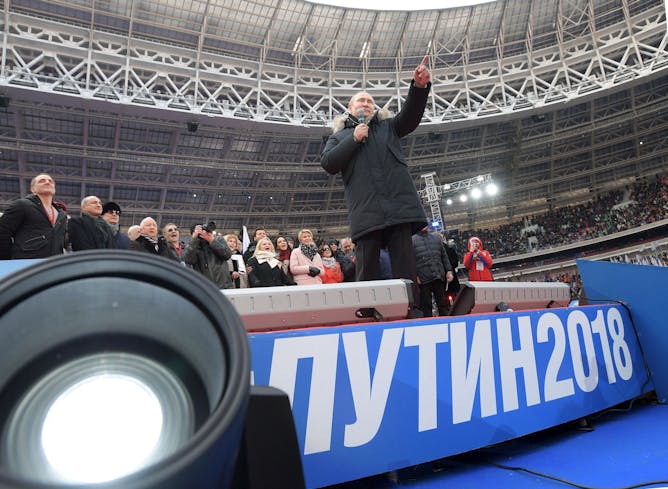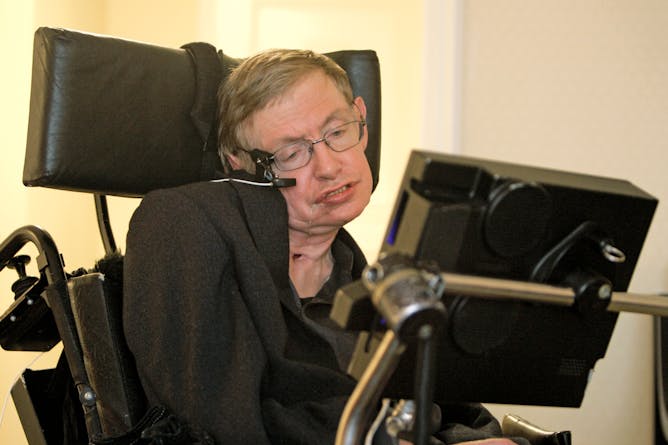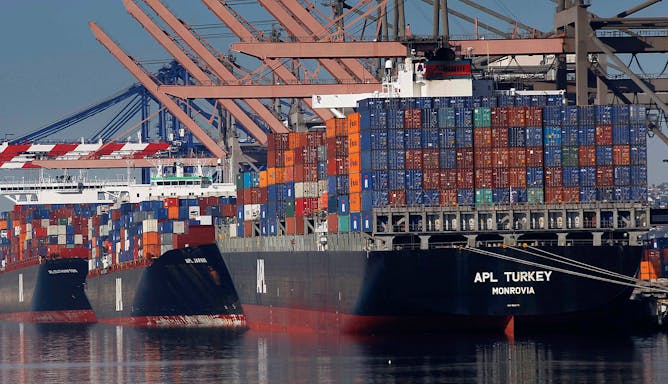Editor's note
|
|
Russians already know who will win this weekend’s presidential election: current President Vladimir Putin. It’s after the balloting that the guessing game starts. Holy Cross Russia scholar Cynthia Hooper writes that Putin’s victory will be a fragile triumph. Almost as soon as he is elected to what should, under the constitution, be his final term, Russians will start wondering: Will Putin be content to be a lame duck, or will he undermine democracy to suit his ambition?
Of course the late Stephen Hawking was a preeminent researcher, looked up to by many for his amazing scientific insights. But University of Montana’s Martin Blair points out that Hawking was a role model for something totally different: how he used assistive technologies to communicate and interact with the world helped normalize them for others.
The topic of trade has been in the news a lot since President Trump imposed steep tariffs on imported aluminum and steel. But what exactly is a tariff and what does it do? Rochester Institute of Technology economist Amitrajeet Batabyal explains everything you need to know about tariffs.
|
Naomi Schalit
Senior Editor, Politics + Society
|

|
|
Top stories
|

Russian President Vladimir Putin at a massive rally in his support n Moscow, March 3, 2018.
AP/Pavel Golovkin
Cynthia Hooper, College of the Holy Cross
The result of Russia's upcoming election is already known: President Vladimir Putin will be re-elected. Will he be content to be a lame duck, or will he undermine democracy to suit his ambition?
|

A computer-generated voice was essential to Hawking’s participation in the world around him.
AP Photo/John Raoux
Martin E. Blair, The University of Montana
You can probably hear Hawking's famously computer-generated voice in your head. His example showed tech as a tool that enables people with disabilities to fully participate in and contribute to the world.
|

Foreign goods wait to be unloaded at the Port of Los Angeles.
AP Photo/Nick Ut
Amitrajeet A. Batabyal, Rochester Institute of Technology
President Trump recently imposed steep tariffs on foreign steel and aluminum. An economist explains what they are, how they work and why they matter.
|
Politics + Society
|
-
Christopher Beem, Pennsylvania State University; Michael Berkman, Pennsylvania State University
The winner of the special election will only serve for eight months, so what's the big deal?
-
Gregory Aftandilian, Boston University
Trump's pick to lead the State Department believes Iran is 'intent on destroying America.' But ending the Iran nuclear deal could unleash a violent chain reaction, a Mideast scholar says.
-
Brent Durbin, Smith College
A new head could help repair the president's relationship with the spy agency, but only if leaders stop playing politics with intelligence.
|
|
|
|
|
|
Environment + Energy
|
-
Trina Hamilton, University at Buffalo, The State University of New York; Winifred Curran, DePaul University
Gentrification is not the only path for improving urban neighborhoods. A cleanup in Brooklyn and Queens offers another, more inclusive model that scholars have dubbed 'just green enough.'
|
|
|
|
From our international editions
|
-
Alease A. Brown, Stellenbosch University
Hollywood will allow the world of the Black Panther to be black, only if it doesn't hurt white people's feelings.
-
Siraj Ahmed Shaikh, Coventry University
Theresa May says Britain could unleash 'extensive measures' against Russia following the nerve agent poisoning of ex-spy Sergei Skripal.
-
Mohammed Al-Mosaiwi, University of Reading
New research shows that people with depression use words such as 'always', 'nothing' or 'completely' more often than others.
|
|
|
|
| |
| |
|
|